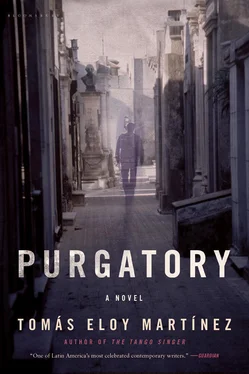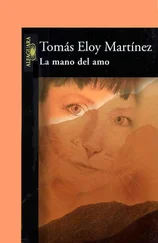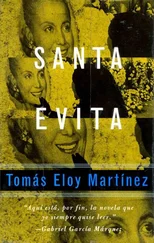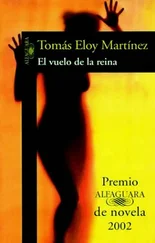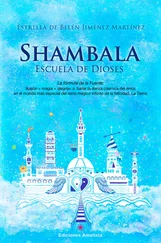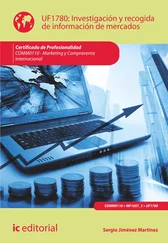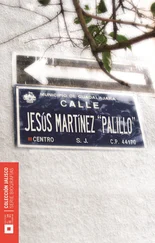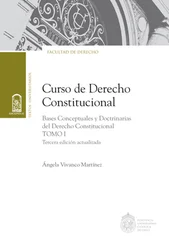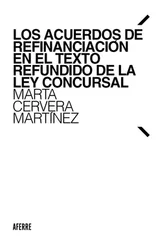Two green Ford Falcons, engines running, were waiting for them at the perimeter fence of the checkpoint. Emilia was bundled into the first car next to a guard in plain clothes. The pot-bellied officers pushed and manhandled Simón towards the other, her husband shuffling along, his legs faltering and uncertain.
This was Emilia’s last glimpse of him, the image that in future she would dream of so often. But in her dreams, Simón was never Simón, but one of the other men they had encountered that day. Or a city that rose and fell. Or a flickering candle flame.
On the drive back to Tucumán, the sky grew dark. Every few kilometres the weather shifted and changed. At times, a furious storm burst, bringing clouds of steam rising from the asphalt. Further along, the sun shimmered and the air shattered into slivers of ice. They came to a point where a convoy of carts hauling sugar cane blocked the road. The officer guarding Emilia got out of the car to try and deal with the obstruction only to come back shaking his head. ‘There’s no way through,’ he said. ‘Two mules dropped dead in the road and there’s no one to move them. We’ll just have to drive round.’
He turned on the two-way radio and informed the checkpoint that they would be making a detour. The cane fields were deserted; the horizon veered from purple to a deep, ominous yellow. They drove along a crude dirt track, the car constantly getting stuck in potholes. Emilia no longer cared where she was being taken or when they would get there. She cared only about Simón. Over and over, at seemingly endless intervals, she asked the guard about him, but the man stared out at the eddying dust and did not answer. Maybe it was pointless to resist, Emilia thought, after all everyone else in the country had already given up. The military were the aristocracy of the spirit of Argentina, and that aristocracy was once more trooping out of its barracks to save the country. How many times had she heard her father recite ‘El discurso de Ayacucho’ 8, in the same antiquated bombastic tones as the national poet who had penned it? Written in 1924, it was a piece of rhetoric which every schoolchild was forced to learn by heart. Every word of it was burned into her brain and circled there still.
As night began to fall, they were forced to stop by a passing train. Slowly, clumsily, the train approached. On freight cars smooth as still water, corpses were being shipped as though they were merely cargo. Except for the three wagons behind the engine, the bodies were exposed to the elements, indifferent to the obscenity of death. The wagons at the front were shrouded in black plastic which billowed open in the wind to reveal a hand, a head, a leg. Ash from the stubble fields whirled around the freight cars in dark flecks: a host of dying butterflies.
It was almost dark when the first Ford Falcon arrived in the suburbs of Tucumán. The broad avenues were lit up; the facades of the houses gleamed as though freshly painted. In the freezing air, the city huddled in on itself. Cars moved slowly; people walked with heads bowed, hugging the walls. The stillness was so deliberate it seemed artificial. Across the boulevard that divided the north of the city from the south hung a banner showing a photograph of three strapping, dishevelled, thuggish young men and, underneath, the words: We will not allow the extremists to destroy the country. Help us eliminate them . A block further on was a poster with an illustration of a hard-working broom bearing the legend, in blue and white: Order and Cleanliness. Death to Subversion .
Order and Cleanliness was one of her father’s propaganda slogans for the government Emilia remembered. How many other slogans had he penned that she was not aware of? God, Country, Family she knew was his, though it belonged to everyone now.
She was taken to the police station where they fingerprinted her and made her sign a piece of paper admitting that Simón had rented the jeep. ‘Under instructions from the Automobile Club Argentina’ Emilia explained in a note at the bottom. Flanked by two guards, she was led down into a vast basement lined on both sides with a row of cells from which there came not the slightest sound. Emilia was locked up in the furthest cell. As soon as the guards left her, she lost all track of time. It took a long while for her eyes to adjust to the darkness. She could make out a cot bed bolted to the floor; in the corner was a bucket from which came the stench of geological strata of urine. The wall opposite was dizzyingly high, at least eight metres, and converged with the wall behind her meaning the cell was shaped like a pyramid. At some point, a guard passed a jug of water through the bars and she gulped it down in one breathless swallow. Her throat was dry, filled with sand and fear.
Just as she was about to fall asleep, a ghostly glow jolted her awake again. On the high wall opposite, some invisible machine was projecting dreamlike images. The pictures came and went, disappearing like shooting stars. She thought for a moment that she was seeing things and remembered a line from Dante she had read at school: Poi piovve dentro all’alta fantasia . It was true: it was raining in her imagination, but raining so hard that the forms and shapes blurred and melted almost as soon as they appeared. She saw Simón rushing headlong into a fire, but that too was one of Dante’s images. She saw a newborn baby being strangled with an electrical cord. The umbilical cord was still attached, and the baby’s face was crumpled in a rictus of terrible pain. The image swelled as though about to encroach on the real world; it grew larger and larger before dissolving into a poster whose typeface reminded her of old cinema newsreels: Baby butchered by subversive criminals . She saw the three persons of the Holy Trinity devouring one another: the Father devouring the Son, and the resulting two-headed monster devouring the dove that was the Holy Spirit, then the dove taking flight and, using his beak as a scythe, beheading the other two. And then she saw herself watching these things, and it was only then that she realised the images were not inside her head, that somewhere there was a hidden projector, though she could not understand why. Who would spend money creating such images? Could anyone else see them?
Every so often the images were repeated, always in the same order, as though part of an infinite loop. At dawn — she assumed it must be dawn by now — they vanished like flotsam carried out on the tide. She tried to sleep, but a radio somewhere nearby kept repeating the lottery results over and over. ‘Two thousand nine hundred and ninety-eight. Eight hundred thousand pesos,’ the presenter announced. ‘Two thousand nine hundred and ninety-eight. Eight hundred thousand pesos,’ echoed the darkness at the end of the corridor. Reality retreated, becoming more and more remote, its place taken up by the only two senses Emilia trusted: smell and touch. But were these senses free or were they too prisoners of some alternative reality which moulded her imagination as it pleased?
She woke again just as someone pushed a mug of steaming maté , a hunk of bread and some fried pork strips through the bars. The litany of lottery numbers continued, but the images on the wall had disappeared. If she wanted to survive, she thought, she had to stay calm, to clear her mind completely, to dissociate herself from what was happening to her body. Difficult as it seemed, she needed to sink into a trance. This would give her the strength to face the worst, if the worst should come. If she allowed herself to feel any emotion, she would be lost. Finally, when she could feel nothing she decided she was safe.
On the third day, a warder ordered her to wash and brush her hair.
Читать дальше
